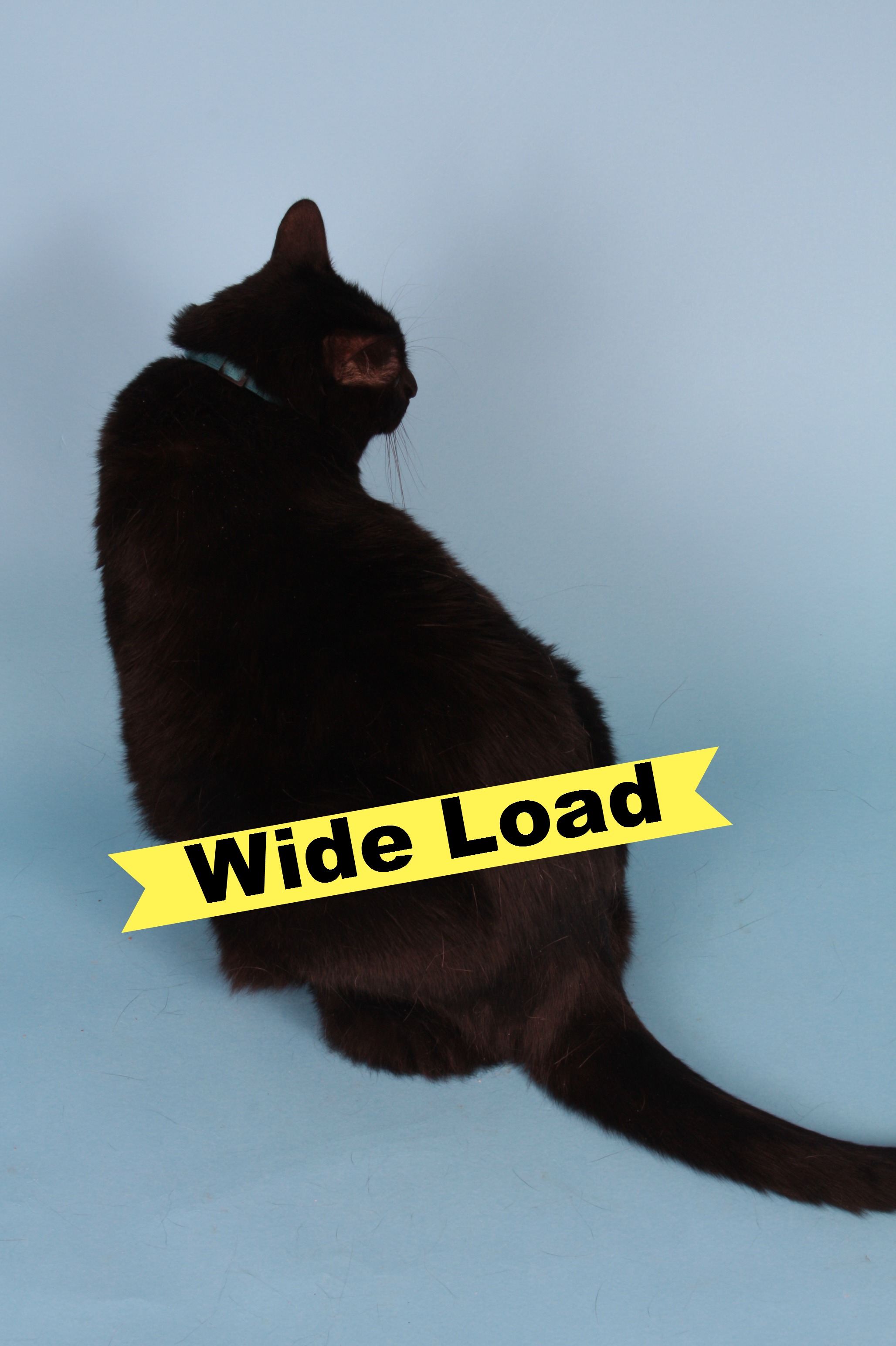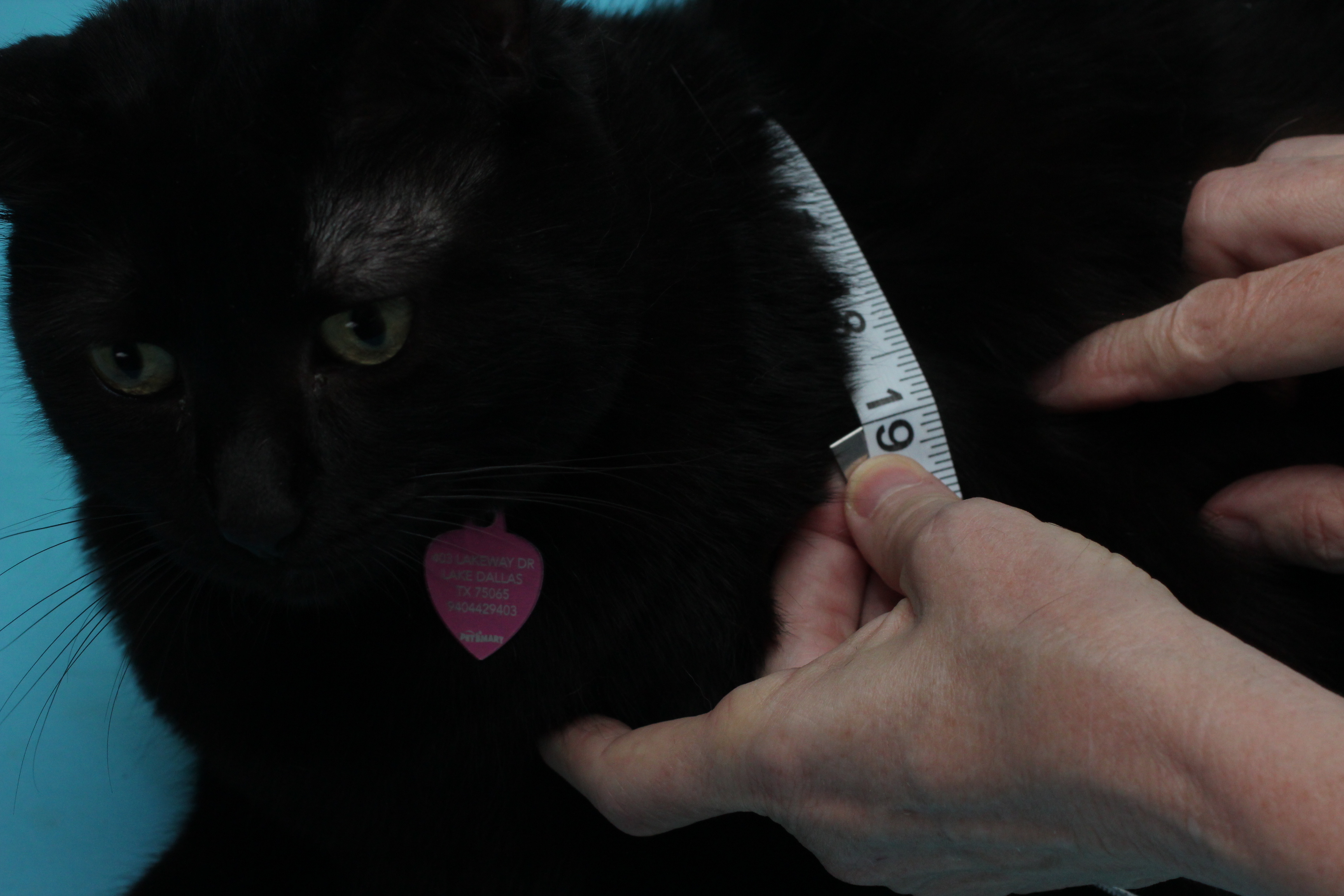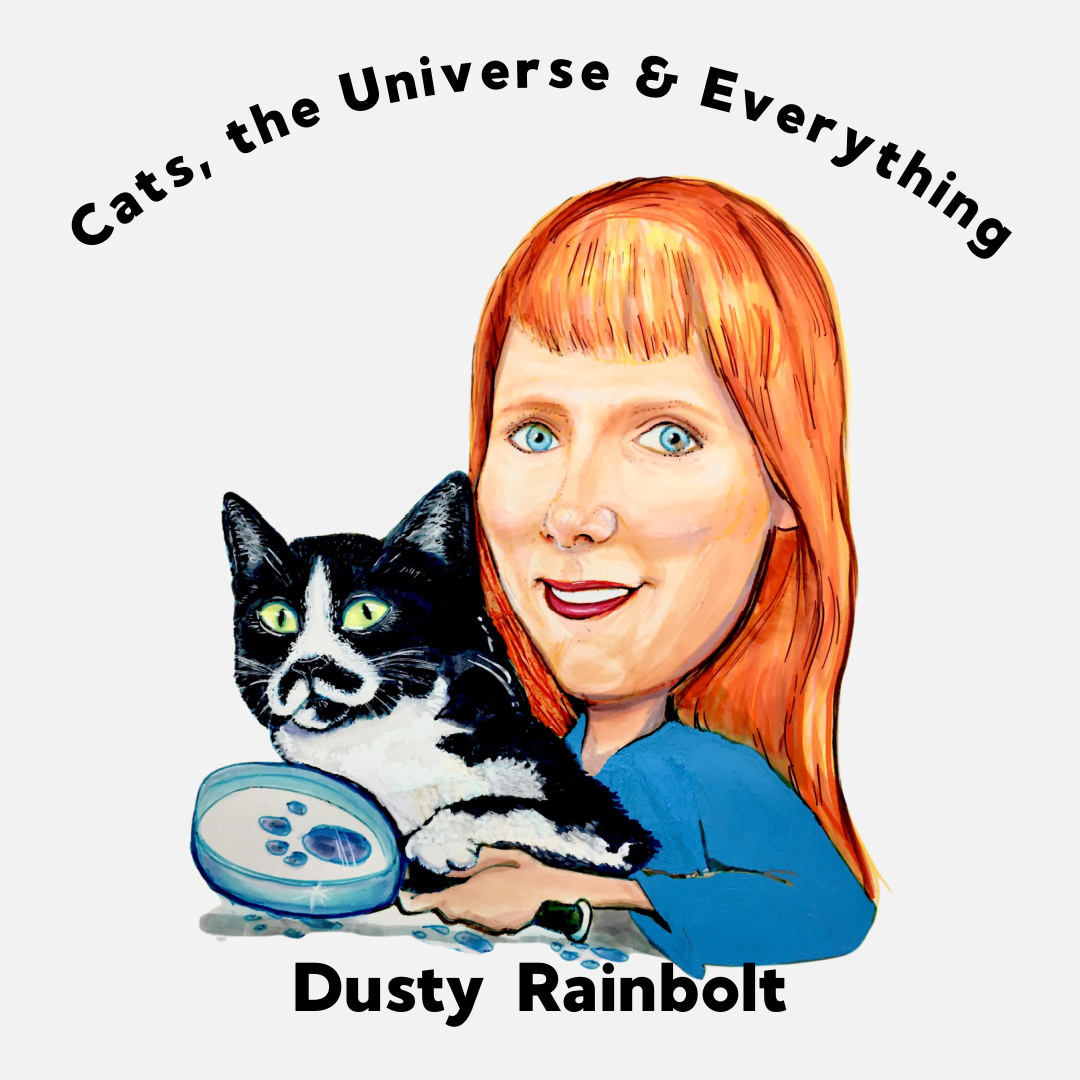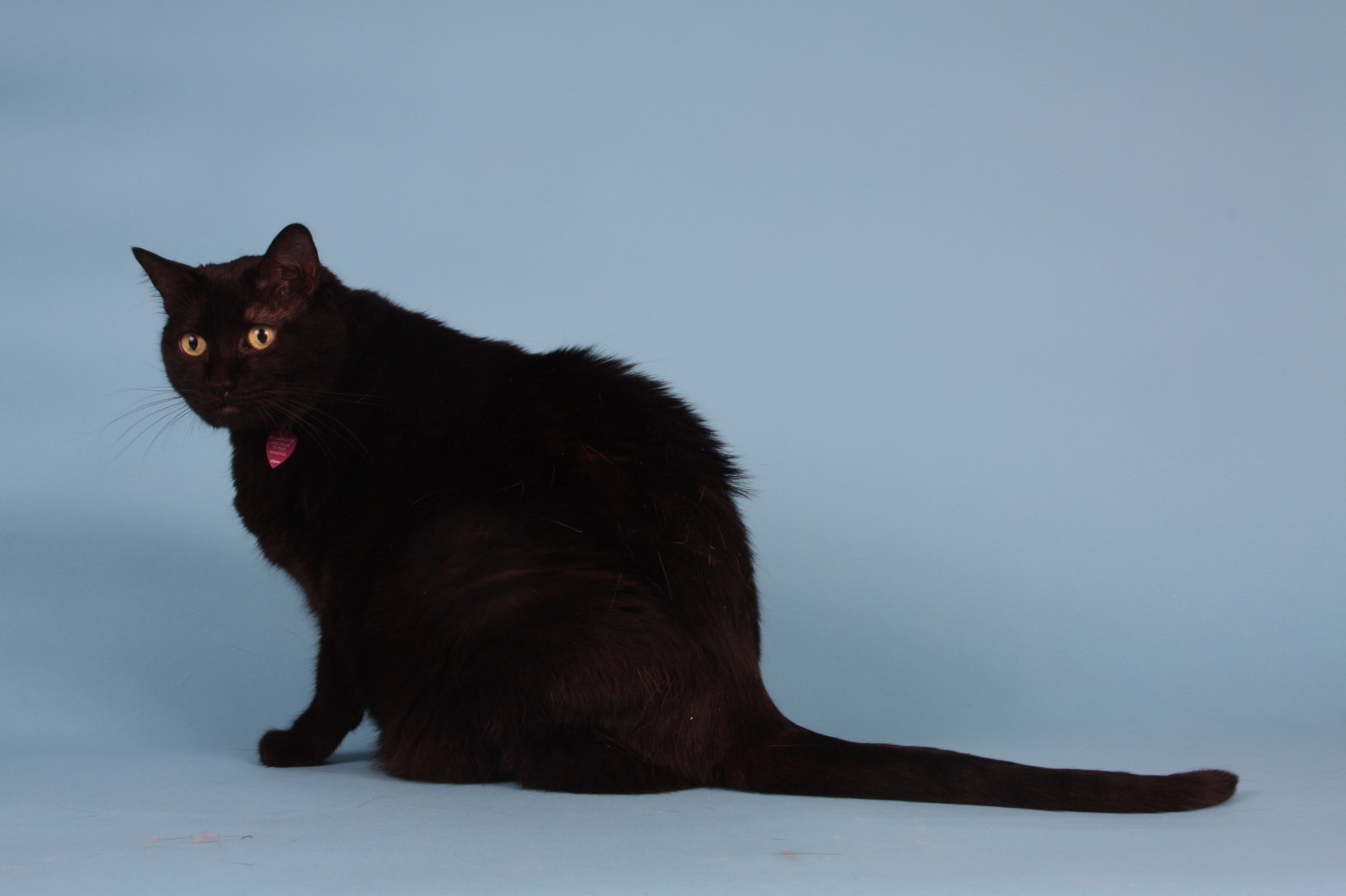
When Shady arrived at our house, she was a big, black blob. Like the cats in the study, she didn’t hold a grudge. After she lost six pounds she was more active and affectionate.
A new study suggests that your cat won’t hold a grudge if you put him on a diet. Once he’s lost some weight, he may actually become more affectionate.
Obesity is a growing problem (pun intended)—humans, cats, dogs—it doesn’t matter. In our land of plenty, the proof is around the beltline. While it’s wonderful that our pets don’t have go to bed hungry like their wild or stray counterparts, obesity shortens their lives and compromises their quality of life. Excess weight contributes to diabetes, cardiac disease, arthritis and any number of other illnesses.
No doubt, if you have a portly puss, your vet has been after you to reduce Fluffy’s flab. But how can you cut back on the feed when you see those big pathetic eyes staring at you, begging like Oliver Twist, “Please, sir. I want some more.”
After all, we humans biologically equate food with love. The first thing any mother does after the birth of a baby is feed it. Dads (and Moms) work hard to bring home the bacon. To most people, the idea of withholding food conveys the opposite of love. We fear that our kitties will blame us for starving them, and punish us by withholding affection.
Take heart, a new study out of Cornell University of Veterinary Medicine suggests you can cut back on the amount of food your cat eats without sacrificing his love. The study, “Owner’s perception of changes in behaviors associated with dieting in fat cats,” was published November 2015 in the online Journal of Veterinary Behavior. The study followed 58 obese cats over eight weeks. The owners recorded pre-feeding behaviors like begging, following, meowing, pacing, swatting, hissing and stealing food, as well as after-dinner behaviors such as jumping the in lap, purring, resting, sleeping, and using litter box.
 Not only did the study, headed by Emily D. Levine, find that cats don’t hold a grudge for reducing their daily intake, after they lost weight most of the study kitties tended to be more affectionate to their humans.
Not only did the study, headed by Emily D. Levine, find that cats don’t hold a grudge for reducing their daily intake, after they lost weight most of the study kitties tended to be more affectionate to their humans.
At the four-week mark, owners noticed an increase of begging, meowing, and pacing before the meal, but those annoying behaviors didn’t begin earlier in the day. So Fluffy may crank up the intensity, but he didn’t drag out your agony.
Once weight loss began, there was an increase of after-dinner affection like jumping in the owners’ lap. At eight weeks purring increased significantly, and begging decreased. Thank goodness.
While I didn’t participate in the study, I had a similar experience. Four years ago, I took in a 22-pound foster cat named Shady. Poor thing was a fat, black blob, incapable of getting on the sofa even with a cat ramp. The former owner, who had Shady declawed, surrendered the four-year old kitty because the other cats bullied her mercilessly. Totally defenseless and unable to get away, Shady could only sit there and endure the abuse.
I worked with my vet, and Shady lost six pounds over four months. She still looks enormous at 16 pound, but now Shady can jump into our laps or onto the bed or the sofa to solicit attention. She plays and even climbs the stairs to our second floor. (In case you were wondering what happened to Shady she’s asleep on our bed. We recently adopted her.)
Never put your kitty on a crash diet. While weight loss will help your cat live longer and feel better, rapid weight loss could cause rapid weight loss can release fat into the bloodstream, causing deadly fatty liver disease. Work with your vet. Slow steady weight loss, monitored by your vet, is the only safe way to go.












I took in two cats from a lady who bragged about how fat Mo was. And that he couldn’t eat what she was feeding her other cat, who was also pretty obese. And looking at her family, they also had weight issues, so you could sort of understand that she might not understand a healthy weight. He was eating some sort of Hills diet while they were feeding the other cat dollar store trash. We switched them both to a high grade of food, and made them work to get the food and Diva, the other cat dropped weight swiftly since she was getting a higher quality of food and has maintained a healthy weight despite being free fed. Mo, also lost weight, not as much as Diva, but when he came in he struggled to get on the counter top, and its not a straight jump, we have several different accesses to the counter. Now he plays more than when he arrived, even though he’s now 11 years old.
Good for you, Leah. It’s hard staring into those “starving” eyes and saying no.
Good for you. It’s so tough saying “no.” You probably added years to your kitties’ lives.